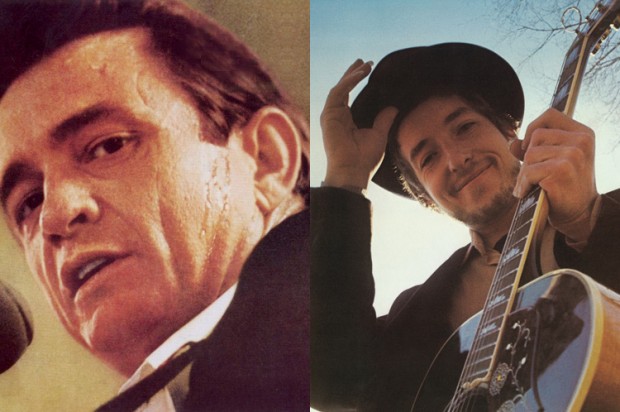 Waylon, Willie and Kris were country music renegades -- but music royalty helped pave the way for their rebellion By Michael Streissguth.
Waylon, Willie and Kris were country music renegades -- but music royalty helped pave the way for their rebellion By Michael Streissguth.
The musical freedom that Waylon Jennings, Willie Nelson, and Kris Kristofferson yearned for in the late 1960s seemed out of reach in the sterile new office buildings and sagging bungalows that housed the record business on Music Row. The corporate enclave ruled every country artist in town. Except for Johnny Cash, who under the cover of midnight darkness lugged his guitar and his band into the studios of Columbia Records.
Cash followed his own rules in the studio, uncorking classic records that dealt with war, the plight of the American Indian, and other thorny topics—a departure from more traditional subjects of love and heartbreak. Cash’s producers let Cash be Cash, which meant throwing away the studio clock, leaving his backing band the Tennessee Three alone, however calcified its boom-chicka-boom rhythm had become, and standing by without complaint while Cash ploddingly chose songs and worked out arrangements—A&R tasks that elsewhere on Music Row would have been completed days before the session. When Waylon Jennings demanded and got such freedoms from RCA-Nashville in the early 1970s, many proclaimed that he was the first. In truth, as with so many things in that town, Cash—the godfather of Nashville’s outlaw movement—had gotten there first.
Bob Dylan came second. He arrived in Music City on February 14, 1966, to record “Blonde on Blonde” and, like Cash, presided over sessions that were the antithesis of Nashville Sound. With the exception of multi-instrumentalist Charlie McCoy, who had traveled to New York in 1965 and unexpectedly played guitar on Dylan’s “Highway 61 Revisited,” none of the Nashville musicians on “Blonde on Blonde” had worked big-label sessions that were so free and easy. Throughout six days of recording, interrupted midway by a few live shows, Dylan wandered into Columbia in the evenings, spent hours scribbling down lyrics and a few more on music, then recorded in the morning. Songwriter Billy Swan was in the final days of the engineer’s assistant job that he would soon give to Kristofferson during those sessions. He admits that he had only haphazardly followed Dylan’s career up to that point, but in between his gofer tasks, he began to see the light. “What was coming back from those speakers was so fucking good: his singing, his performing. That whole album is fantastic.”
Excerpted from "Outlaw: Waylon, Willie, Kris and the Renegades of Nashville"

 Subscribe to RSS Feed
Subscribe to RSS Feed